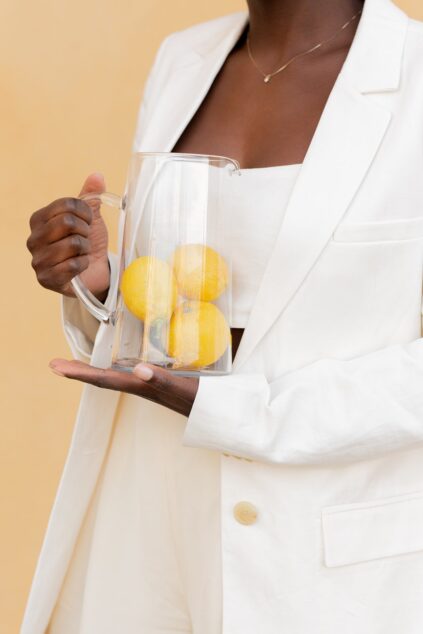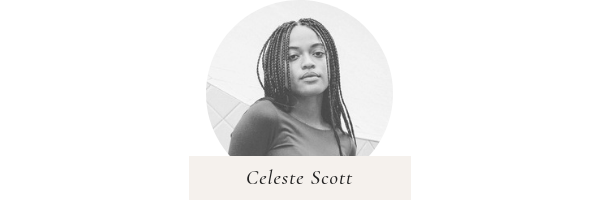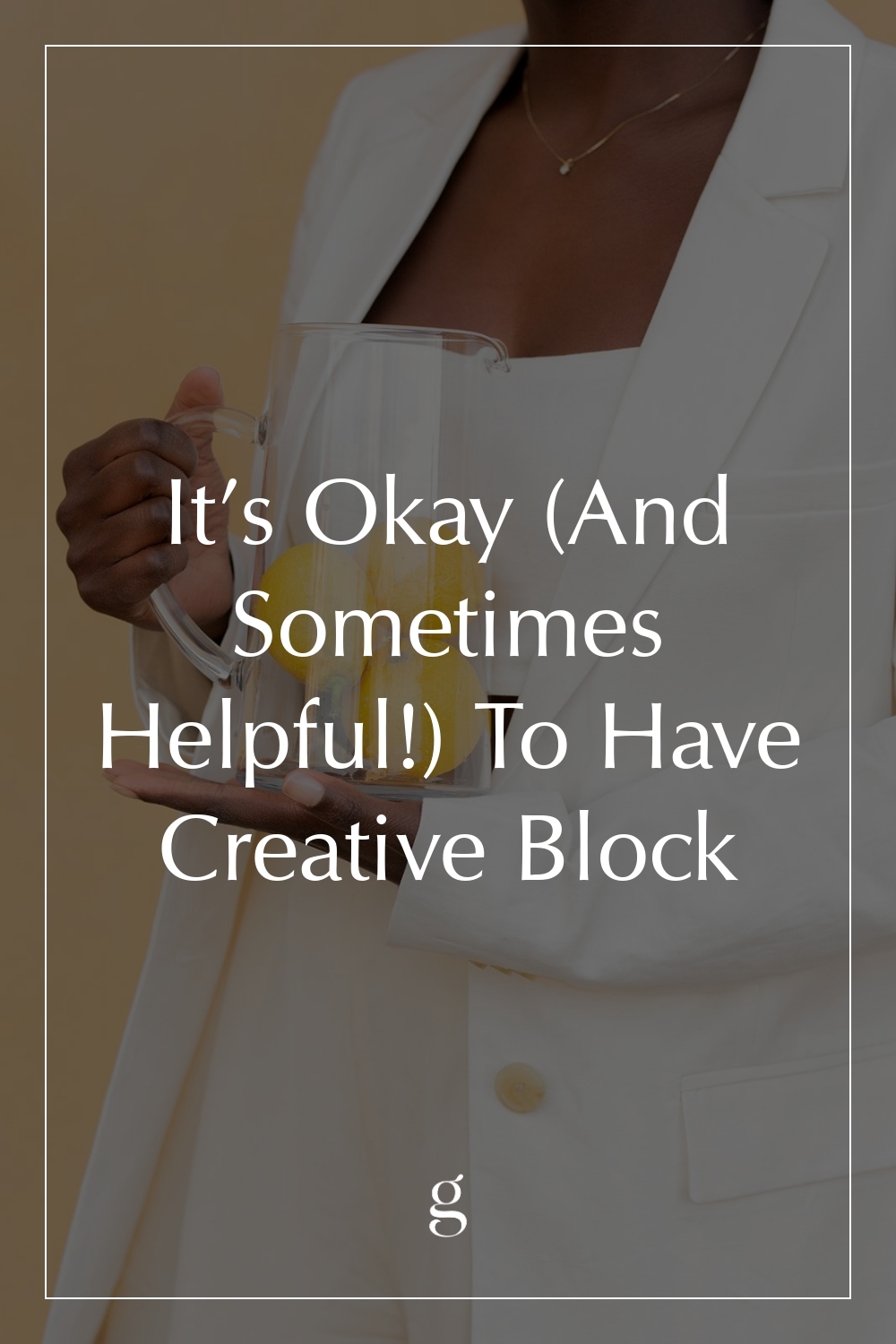
It’s Okay (And Sometimes Helpful!) To Have Creative Block
Everyone always tells me how lucky I am that I landed a writing job right out of college. And they’re not wrong. It’s surreal to think that at 22 years old, I make my living using my creativity on a daily basis. That I can write about socks or how boys didn’t like me in high school, and it all goes towards a paycheck.
I genuinely love what I do, which feels unusual for someone at my age. However, working in a creative field has presented one recurring issue that I’m still learning how to navigate: creative block.
If you work in any sort of creative capacity, odds are you’re all-too-familiar with this concept. The gut-wrenching feeling of sitting in front of a computer screen, a blank Google Doc open, dusting the metaphorical cobwebs out of your seemingly-empty brain. (Ironically, this is exactly the feeling I had as I sat down to write this article.)
“The sinister thing about creative block is that it always seems to come about after you’ve been on a roll.”
The sinister thing about creative block is that it always seems to come about after you’ve been on a roll—after you’ve written an article that made everyone cry, or posted a relatable illustration on IG that all of your followers sent in their group chats. I couldn’t tell you how many times I’ve written what I’d considered to be my BEST article yet, only to show up to our next pitch meeting feeling bone-dry in the ideas department.
When you’re someone like me, whose work is very personal, creative block tends to feel…well, personal! Contrary to popular belief, the mind is not an endless well, overflowing with teachable moments and deep life lessons. And still, I can be hard on myself when I’m fresh out of ideas.
Creative people operating in the world of capitalism (i.e. all of us) can get caught up in this mentality of “hustling and grinding,” simply as a means of survival. Creativity is king in 2019, and the more content you crank out of your brain and into the world, the more successful you will be.
Creative block is especially hard on young people who are just starting out with their careers. I’ve always been a writer—I’ve been conjuring up short stories and scripts since I was old enough to hold a pencil. But it wasn’t until college that I began to think about my creativity as inextricably linked to money and success.
“I felt this pressure to write about life experiences I hadn’t yet fully processed, just so that I could have something to write about. ”
I spent my junior and senior years of college writing for as many online publications as I could, to build a portfolio and make myself a valuable candidate for employment after graduation. Though I loved the process and practice of writing, I couldn’t shake the guilt I felt when I couldn’t come up with ideas.
I then felt this pressure to write about life experiences I hadn’t yet fully processed, just so that I could have something to write about. I learned from one of my favorite writers, Mari Andrew, that it’s important to write from your scars, not your wounds. Having creative block never felt like a good enough excuse to break this rule, which often left me feeling stuck.
Now that I’m working in a creative field, professionally, I sometimes run into the same dilemma. Creative block doesn’t cease when you have a pitch meeting the next day. So realistically, how do you navigate the block, when a big part of your profession is producing creative content?
My suggestion, which is simple and probably not super satisfying, is to just let it be. As I’ve been learning to take a slower approach to life as a whole, I’ve realized that a huge part of being a creative is simply allowing life to happen to you. This means that I may not always be on the brink of my most insightful, tear-jerking essay to date. And not only is that okay, but it’s also completely normal. No one (I promise you) is full of good ideas all the time. Not even your favorite writers, illustrators, musicians, or photographers. No one.
“If it weren’t for life itself, we wouldn’t have a place to create from in the first place.”
In fact, if it weren’t for life itself, we wouldn’t have a place to create from in the first place. I remind myself that life has to happen to me in order for me to have things to write about—and it actually makes for a more meaningful and robust creative practice.
Now, I know what you’re thinking, “But, Celeste…what do I tell my boss?” This answer is also simple and probably not super satisfying: the truth.
Being open with our employers and co-workers about creative block is essential when you’re working in a creative capacity. I’ve tried to make a habit of being honest with our editorial team when I’m experiencing creative block. This honesty is always met with sensitivity and understanding.
I will say, however, that having creative block should never be an excuse to come to the table empty-handed. You may not be able to come up with your best ideas, but that shouldn’t bar you from coming up with ideas altogether—especially if your job depends on it.
“Whatever it takes, I find ways to bring something to the table. Getting through the block is simply a part of the process.”
For me, getting through the block looks like getting more creative (go figure) about the way I approach my writing practice. That might mean that I pitch some more light-hearted, easygoing pieces instead of something more emotionally-charged. I’ll ask myself if there’s something I’ve been wanting to research that could be fun to explore. Sometimes, I’ll even scroll through my most recent tweets to see if there’s a funny or intriguing thought that might be interesting to expand on in a longer format.
Whatever it takes, I find ways to bring something to the table. Getting through the block is simply a part of the process. And the work I produce during the block—even if it’s not exactly memoir-worthy—is usually better than expected.
If you’re going through a period of creative block, know that your next great idea is probably right around the corner. And if it’s not, it will come when it comes. In the meantime, don’t be afraid to come up with some just “okay” ideas, and keep working at your craft.
I’m curious to hear any of YOUR advice for how you push through creative block. Feel free to leave your suggestions in the comments below ✍️💛
RELATED READING
Celeste M. Scott is the Social Media Coordinator at The Good Trade. She is a writer and photographer who is passionate about film and Internet culture. She can often be found sifting through the racks at her local Savers. You can find her work on her website and Instagram.

